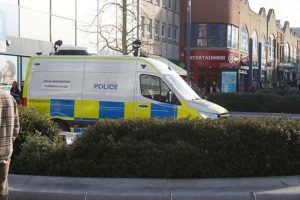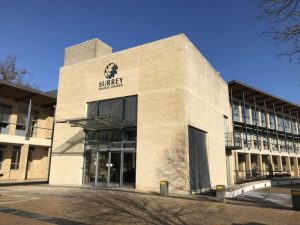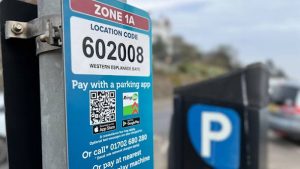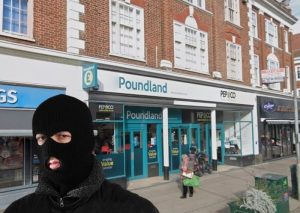Surrey Police have begun using live facial recognition (LFR) technology after securing two mobile LFR vans in a joint bid with Sussex Police. The first deployment took place this week in Redhill following months of planning.
The vans use real-time facial recognition to compare faces captured on live camera feeds with a pre-determined police watchlist. Surrey Police say this list will include wanted persons such as sex offenders and perpetrators of domestic abuse. According to the force, images of everyone else are “instantly and permanently deleted”, and images of those on the watchlist are deleted within 24 hours.
Police acknowledge the historical concerns about gender and ethnic bias in commercial facial recognition systems but state that the national algorithm they will use “shows no statistical bias” and has been tested by the National Physical Laboratory. Officers will receive briefings on potential disparities relating to race, age and gender, and any computer-generated match will be checked by an officer before action is taken.
The force says deployments will only be authorised by a Superintendent and carried out “in a proportionate manner”, with clear signage on the vans and advance publication of deployment locations. The vans are funded by the Home Office for five years and may be made available to other forces for mutual aid.
Chief Inspector Andy Hill, Surrey Police’s lead for LFR, said the technology is “a vital tool to help us to investigate crime thoroughly and relentlessly pursue criminals”. He added that the rollout had been “meticulously planned” to ensure appropriate and transparent use. Police and Crime Commissioner Lisa Townsend described the vans as an important means of identifying violent criminals and sex offenders.
If the LFR vans come to Epsom and Ewell, Surrey Police say residents will be notified before deployments and that the vans will be signposted when in use.
National picture
The deployment in Surrey comes as the use of facial recognition technology accelerates across UK policing. Forces in England and Wales have increasingly turned to mobile LFR units, with millions of people scanned nationally each year and several hundred arrests made as a result. London’s Metropolitan Police and South Wales Police are among the heaviest users, reporting arrests of wanted individuals including violent offenders and registered sex offenders.
While these figures suggest a measurable benefit, LFR still represents a small proportion of overall policing activity, and questions remain about its accuracy, its effect on minority groups and the proportionality of scanning large numbers of passers-by for relatively small numbers of matches.
ICO guidance and safeguards
The Information Commissioner’s Office (ICO) has issued detailed guidance stating that facial recognition used by police must comply with strict requirements of data protection law. Forces must demonstrate that each deployment is lawful, fair, transparent and based on necessity and proportionality. Data Protection Impact Assessments are required, and forces must show clear justification for the locations chosen, the purpose of the watchlist, and the retention policy for images. The ICO stresses that facial recognition “does not operate in a legal vacuum” and will continue auditing police use.
Advance signage and practical concerns
One issue not fully addressed in the Surrey Police statement is how advance signage will work with mobile vans. In practice, UK police forces usually publish the location of an LFR deployment only shortly before the van becomes operational. Because the vans can be moved rapidly as part of an operation, advance publication generally refers to the place where the van parks, not its movements throughout the day. Some forces update information if the van relocates, though not always in real time.
Another question is whether advance notice undermines the policing purpose by alerting wanted suspects. Civil liberties groups argue it does, but police note that most arrests via LFR occur even when deployments are announced. Many wanted individuals do not monitor police websites, and the requirement for transparency stems from data protection law rather than operational convenience. The ICO has made clear that secrecy around deployments would be unlikely to meet legal standards of fairness.
Local implications
For residents, the potential arrival of LFR vans in Epsom and Ewell would bring a technology that is increasingly common across the UK. Surrey Police emphasise that law-abiding members of the public have “nothing to fear” and that images of those not on a watchlist are immediately deleted. However, questions remain about how watchlists are created, how effectiveness will be measured and whether Surrey Police will publish statistics on matches, false matches and resulting arrests.
As mobile facial recognition becomes a more familiar part of policing nationwide, the way Surrey Police implement and report on these deployments will be key to maintaining public confidence while pursuing the serious offenders the technology is designed to identify.

Photo: A live facial recognition van. Courtesy – Sussex Police.











